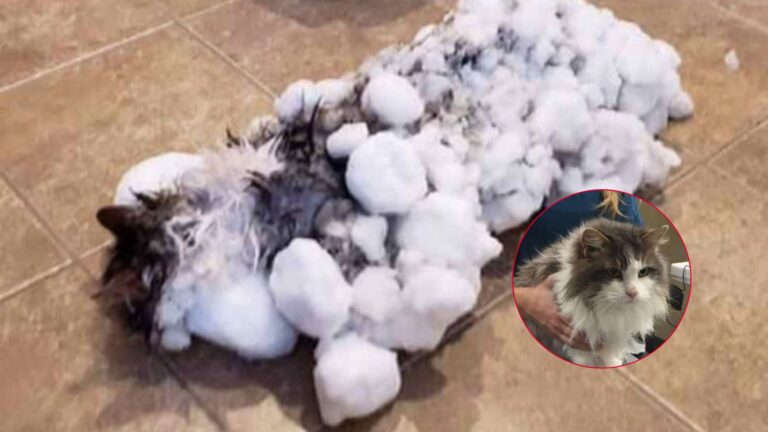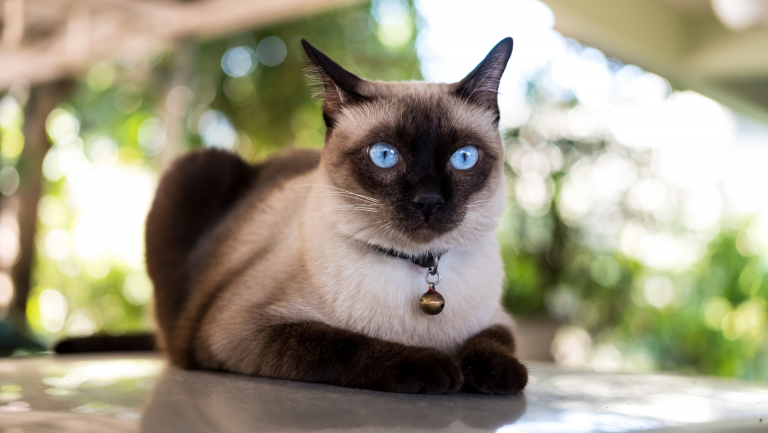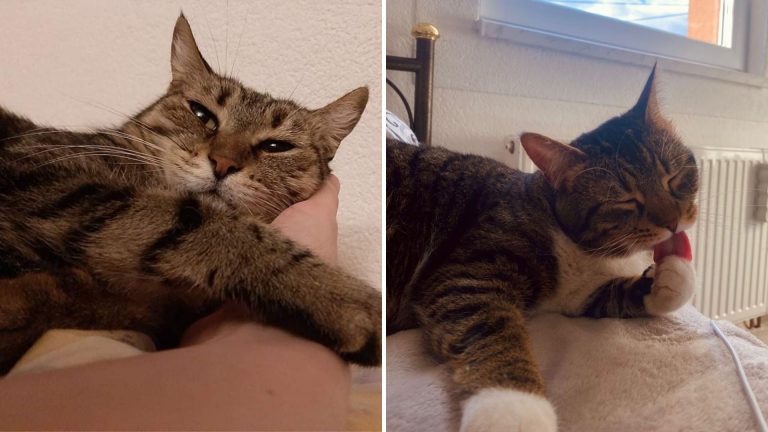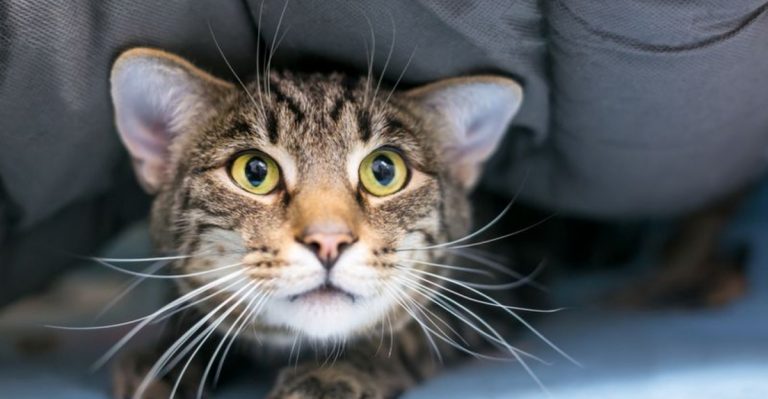Why Doesn’t My Cat Purr? 8 Possible Reasons
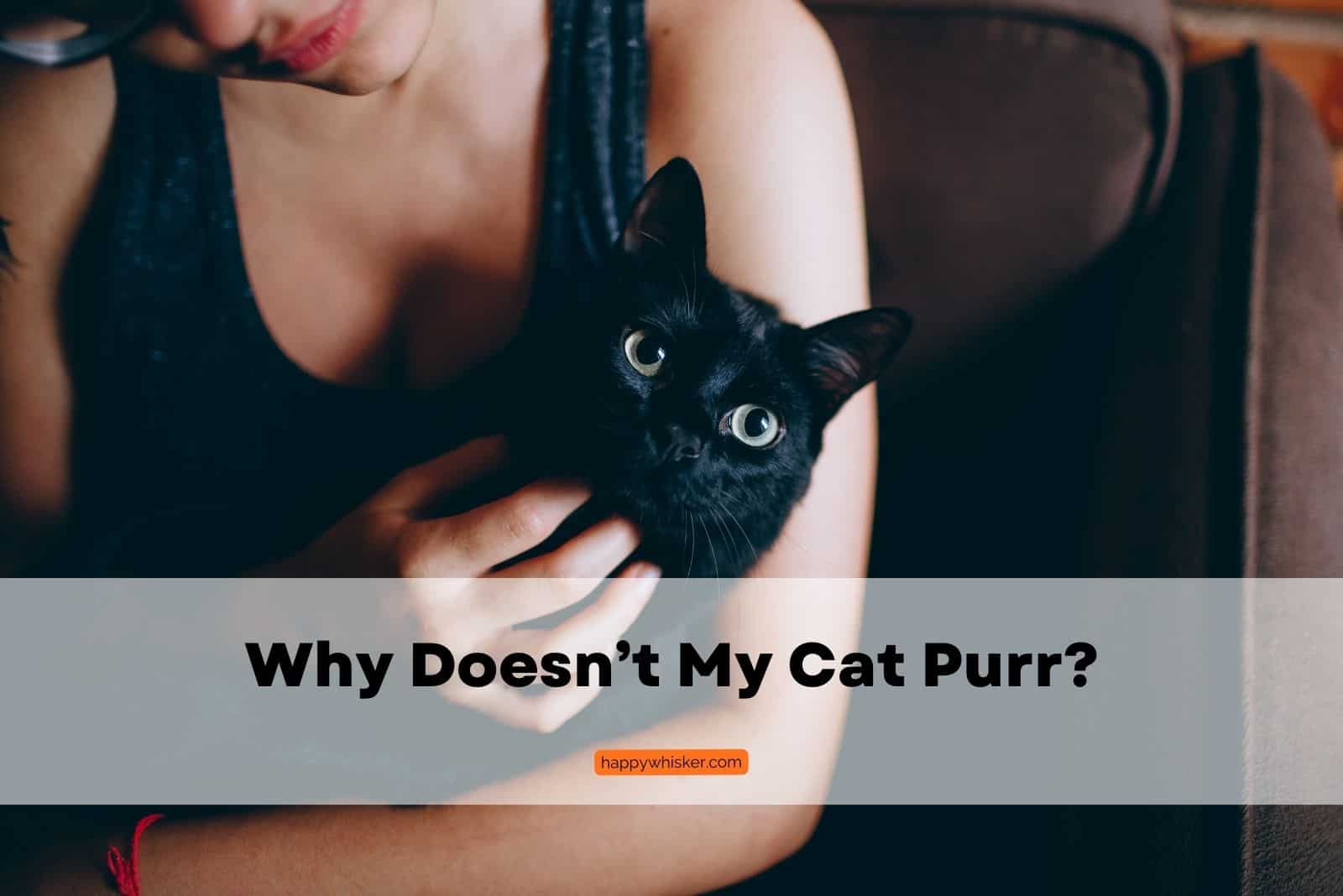
Every cat parent is familiar with one of the most beautiful and relaxing sounds that cats produce, and that is purring.
However, if you want your cat to purr, you should know that they need to be extremely happy, satisfied, and relaxed.
So, if you wonder why doesn’t my cat purr, then you should know that something is not completely right.
Luckily, this article will provide you with everything you need to know about this topic. It will help you understand the possible reasons for cats not purring, as well as introduce you to the benefits of this enjoyable sound.
Why Doesn’t My Cat Purr?
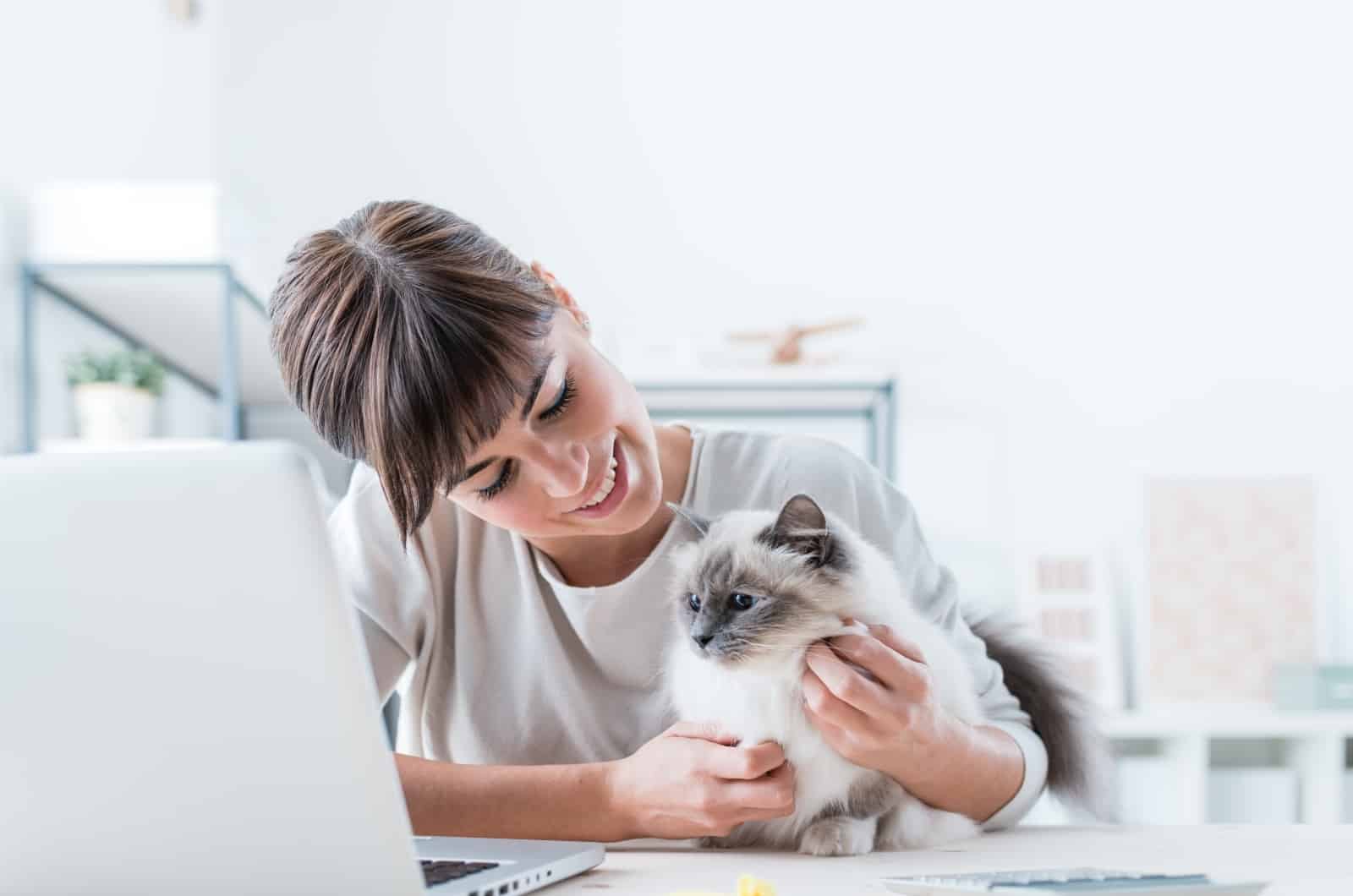
Almost every type of cat purrs, and the happier the cat, the louder it will purr. But why do cats purr?
Cats usually purr when they’re happy, satisfied, relaxed, communicating with their owner, sleeping, and similar.
Cats produce this sound by using the muscles in their diaphragm and larynx. That way, they are able to control the true and false vocal cords. So, they control the airflow while inhaling and exhaling and vibrate it to purr.
However, some cats may not purr often, or they purr very quietly, which may worry some cat owners to the point that they wonder – why doesn’t my cat purr?
Now, if you’re familiar with the reasons why cats purr, you will easily understand why they don’t.
Still, this article will help you better understand cats’ purring and help you find out the causes for them not producing this lovely sound. So, get ready, and check out these possible reasons.
Reason No. 1 – The Cat Is Stressed
I already mentioned that cats purr when they’re calm and relaxed. That usually happens when they’re in a stress-free environment where they feel completely safe.
However, if you notice that your cat isn’t purring, one of the causes for that issue may be that your cat is stressed.
There are many different things that may cause your cat stress, such as the following:
• Unknown people
• Sudden, loud, and unfamiliar noises
• The presence of new pets
• Injuries and pain
These are only some of the things that can cause your cat stress, but if anything similar is happening in your cat’s environment, you should know that stress may be the main cause of why your cat isn’t purring.
So, if you’re sure that the cat is stressed and not purring because of it, then you should find the exact thing that causes your cat stress and reduce it or eliminate it completely.
Provide your kitty with several safe places or hiding spots where it can relax. Still, the most important thing to do if you want to make your cat feel calm and relaxed is to provide it with a lot of love and attention to show it that they’re safe with you.
Once you hear your cat purring again, you’ll know that you did a good job, but in case your cat still doesn’t purr, then there might be another reason for this issue that requires your attention. So, read on to learn more.
Reason No. 2 – The Cat Has Vocal Cord Issues
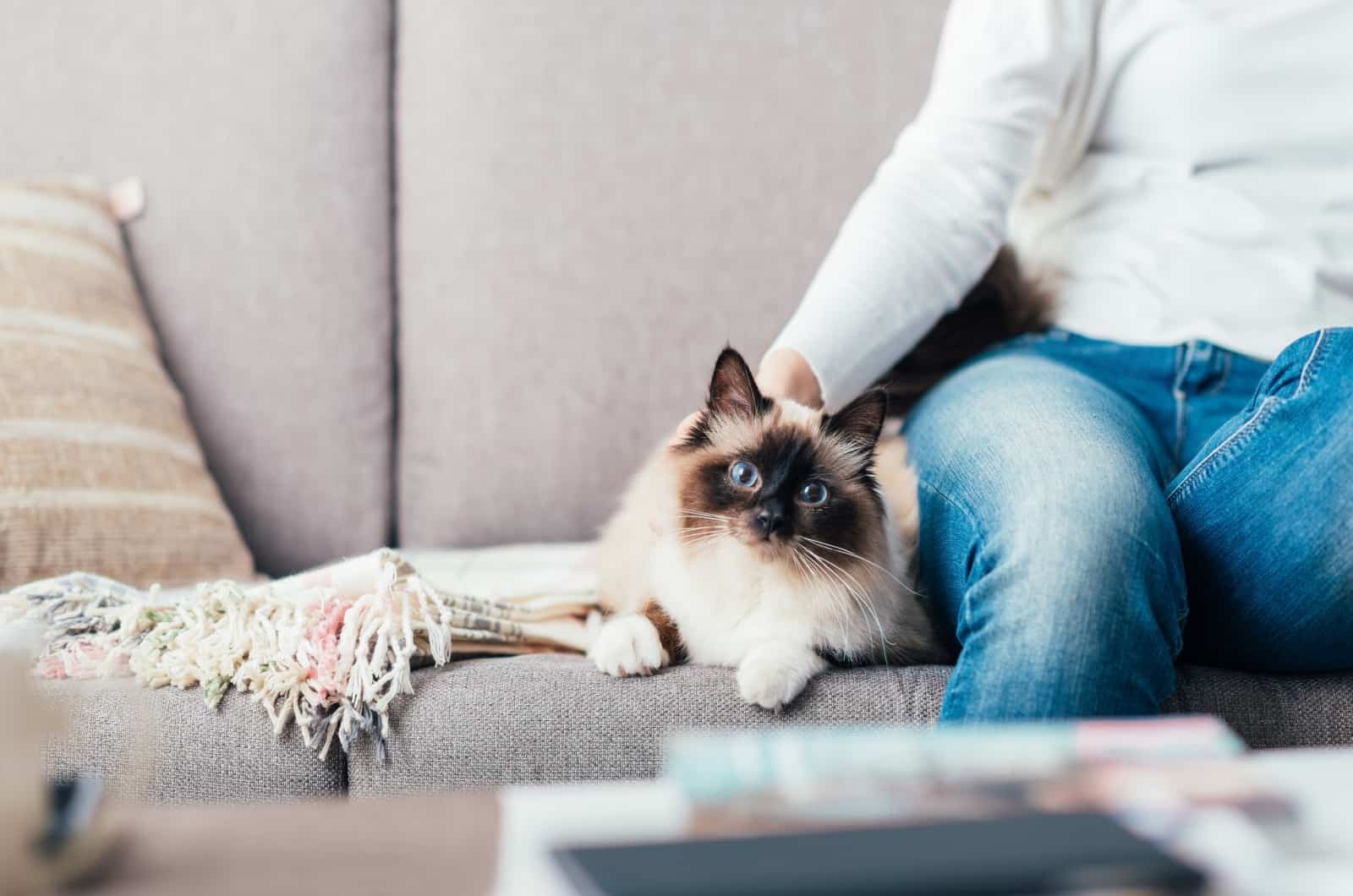
If your cat isn’t purring at all, the reason may be more severe such as a vocal cord issue. I already mentioned that cats purr by using the muscles in the diaphragm and larynx. So, if these muscles get injured or similar, your kitty may not be able to produce the vibration, that is, purr.
If you assume that your kitty has vocal cord issues or injuries, it would be best to take it to the vet for an examination so that you can treat it on time. After the vet determines the exact underlying cause, only then will they be able to treat it properly.
Some of the most common health issues that can affect the larynx (the voice box) are:
• Abscesses
• Cancer
• Injury
• Autoimmune diseases
• Hereditary paralysis
• Muscle disorders, etc.
The good thing is that most of these issues can be easily treated, which means that if you react on time and treat the vocal cord issue properly, your kitty will be able to purr again.
Reason No. 3 – Every Cat Communicates Differently
Every cat knows how to purr as it’s a natural thing for felines; however, not every cat will necessarily purr for many different reasons. Put simply, different cats have different ways of communicating with their owners and other animals.
For example, orphaned kittens have never heard their mother cat purr; therefore, they don’t purr either. Such a kitten or cat may start purring only after being introduced to other cats and hearing them purr.
Some cats communicate through their behavior, facial expressions, and body language; some purr, and some tend to produce other sounds such as meowing (especially talkative cat breeds), chirping, chattering, clicking noise, and similar.
So, if your kitty doesn’t purr and you’re sure that nothing is wrong with it, you can relax because it’s a normal thing.
However, if you want your feline friend to purr, you can encourage it to do it. More about this later on in the article.
Reason No. 4 – The Cat Is Old
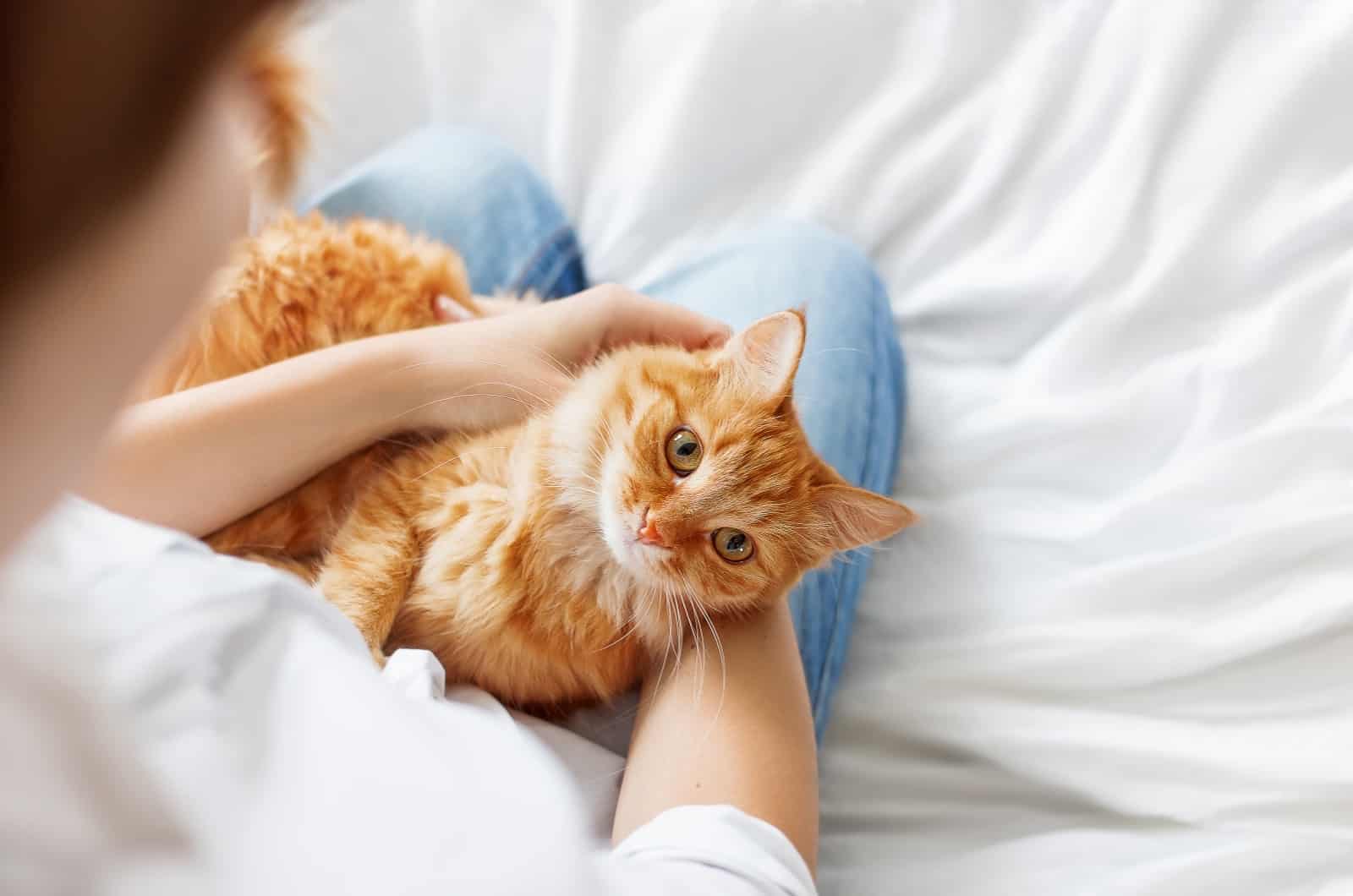
If you wonder why doesn’t my cat purr, I suggest you think about your cat’s age, because it can be related to the cat’s age.
Older cats are usually calmer and slower than younger mature cats, which is normal. However, with age, cats also purr less and meow less, as though they’re tired of everything.
One of my senior cats reduced her vocalization. Now, she only meows if she sees food or treats, but when she was younger, she would meow all the time for different things.
When it comes to purring, this is also reduced, so she purrs only when she comes to me for a pet, but she’s not much of a cuddling cat, so that is very rare too.
Luckily, she still shows her behavior through body language, which allows me to recognize her feelings. Knowing your cat’s body language and what it is trying to tell you is one of the essential things when interacting with your furry friend.
Reason No. 5 – The Cat Has Feral Origins
After doing a lot of research, I also discovered that kittens with feral origins that are born to a feral mother don’t purr often. The explanation is fascinating but logical.
It is believed that feral cat mothers discourage their kittens from purring in order to prevent predators from noticing and hearing them. So, it’s actually a way for a mother cat to keep her litter safe.
Still, that isn’t the only theory I discovered. The other one says that feral cats are usually quieter than domestic house cats, mostly because they don’t have to communicate and interact with their owners like domestic cats, especially when they need food, water, play, and similar types of interaction.
Reason No. 6 – The Cat’s Purr Is Ultra Quiet
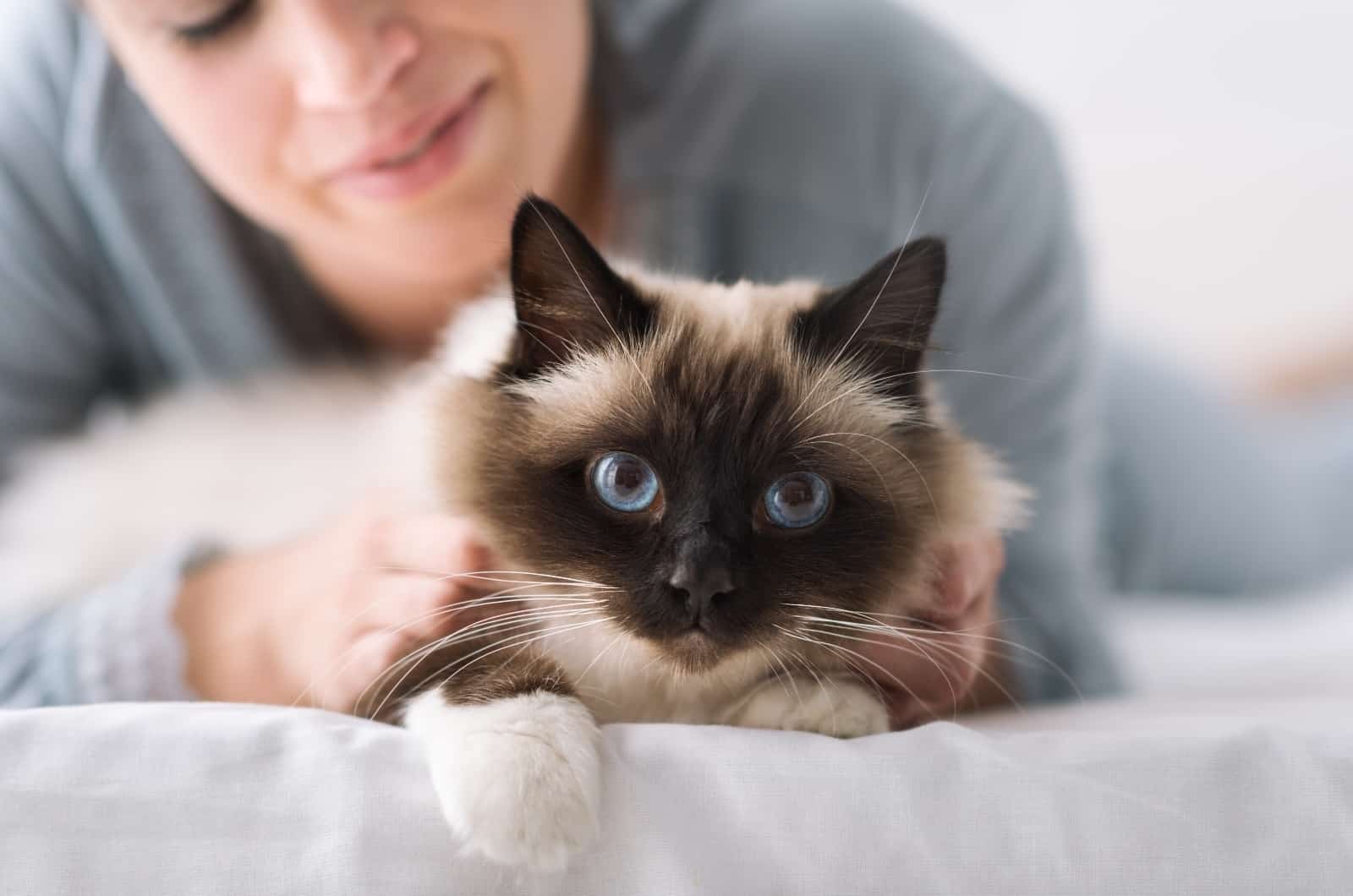
Did you know that every cat purrs differently? Some cats naturally purr quietly, and some cats purr loudly. Still, there are some cats who purr loudly in order to emphasize how satisfied and content they are.
Moreover, the purring volume may also depend on the cat’s size and weight and on the specific breed of cat. For example, talkative breeds, such as Siamese cats, may purr loudly compared to some quiet breeds.
So, if you think that your kitty isn’t purring, you might be wrong; it may be purring ultra quietly. If you want to find out whether your cat is purring or not, there’s a simple way to check it out.
Simply press your hand gently on the cat’s throat, under the chin, while it’s relaxing, and if you feel soft vibrations, your kitty is purring quietly.
Reason No. 7 – The Cat Is Sick Or In Pain
In most cases, cats purr when they are happy and relaxed. But, if your cat is sick or in pain due to a certain injury, it cannot be relaxed; therefore, that may be another reason for your cat not purring.
When cats are sick or in pain, it’s usually very easy to recognize it because they completely change their behavior and body language. Some of the signs that can help you recognize your cat is having certain issues are:
• Diarrhea
• Vomiting
• Loss of appetite
• Weight loss
• Lack of grooming
• Excessive hiding
• Sleeping more than usual, etc.
So, if you notice some of these signs in your cat’s behavior, it may be that the cat is sick and in pain; therefore, it cannot purr and it requires professional help.
To help your cat, it would be best to take it to the vet for an examination, especially if you’re not experienced enough, and let the vet do the job.
In such cases, it’s quite important to follow the vet’s instructions and provide the cat with the proper treatment. With good health care, the cat will get better in the blink of an eye and may start purring normally when it gets better.
Reason No. 8 – The Cat Has A Different CATtitude
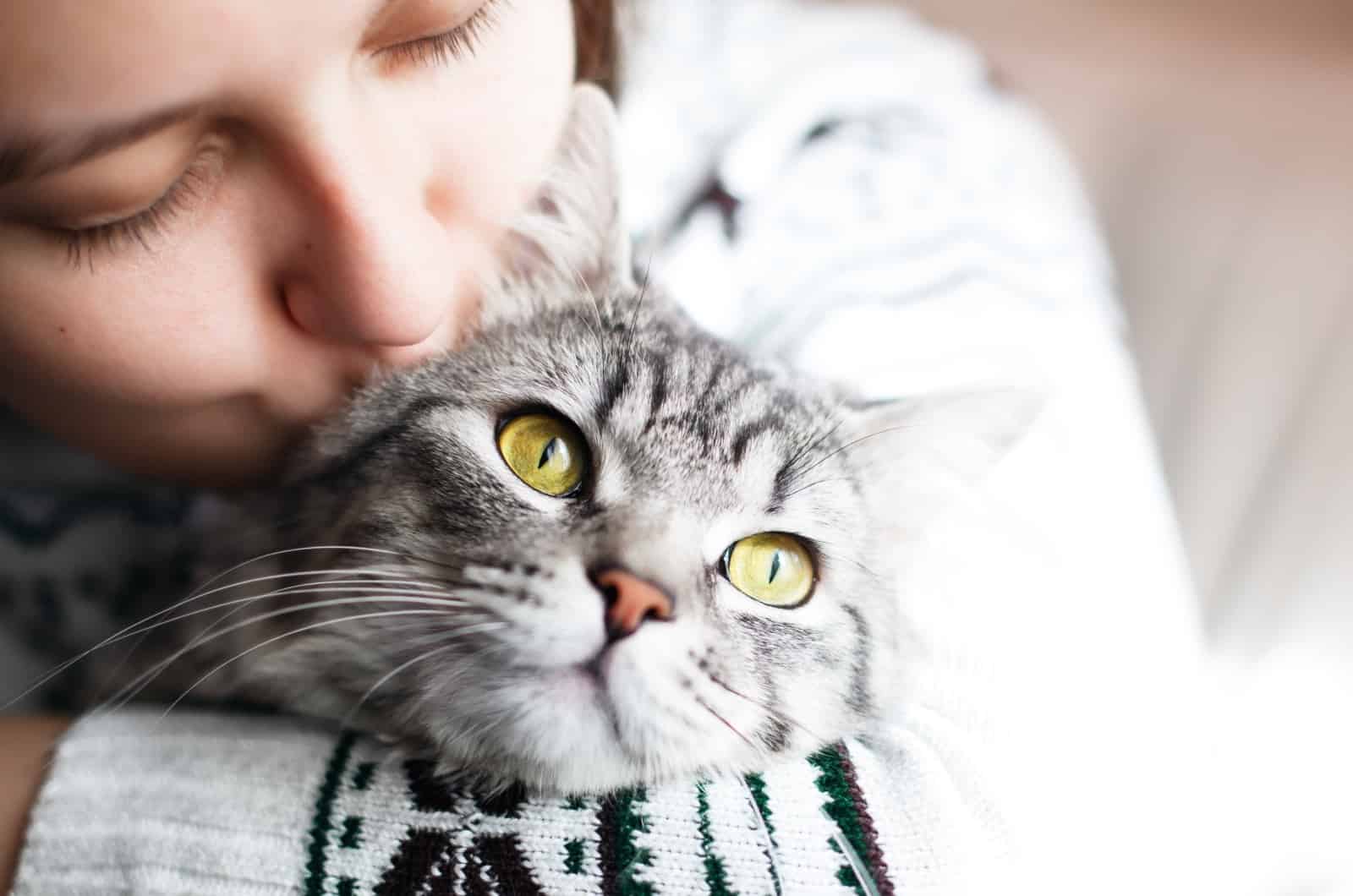
Whether a cat will purr or not has a lot to do with the cat’s temperament, believe it or not.
If you know how it feels to be in feline company, then you should know that there are lovely, friendly cats who adore attention and cuddles, but on the other hand, there are those cats who prefer to be alone and not bothered by anyone.
Just like that, those cats who adore cuddles will often purr, and you’ll also be able to hear them often because they trust you and enjoy interacting with you.
So, when you try to pet an independent cat that might not be interested, it may react aggressively, and you’ll rarely hear it purr.
I have one of these cats, and it has nothing much to do with the training and socializing process; it’s the cat’s natural temperament.
She likes being alone, and the only interaction I get to have with this cat is when she comes to me for a petting session which lasts very briefly. Only then can I hear her purr, but that happens very rarely.
So, if you wonder why my cat doesn’t purr, maybe you should pay attention to your cat’s temperament, and if your cat is similar to mine, then there’s your answer.
Can You Encourage Your Cat To Purr?
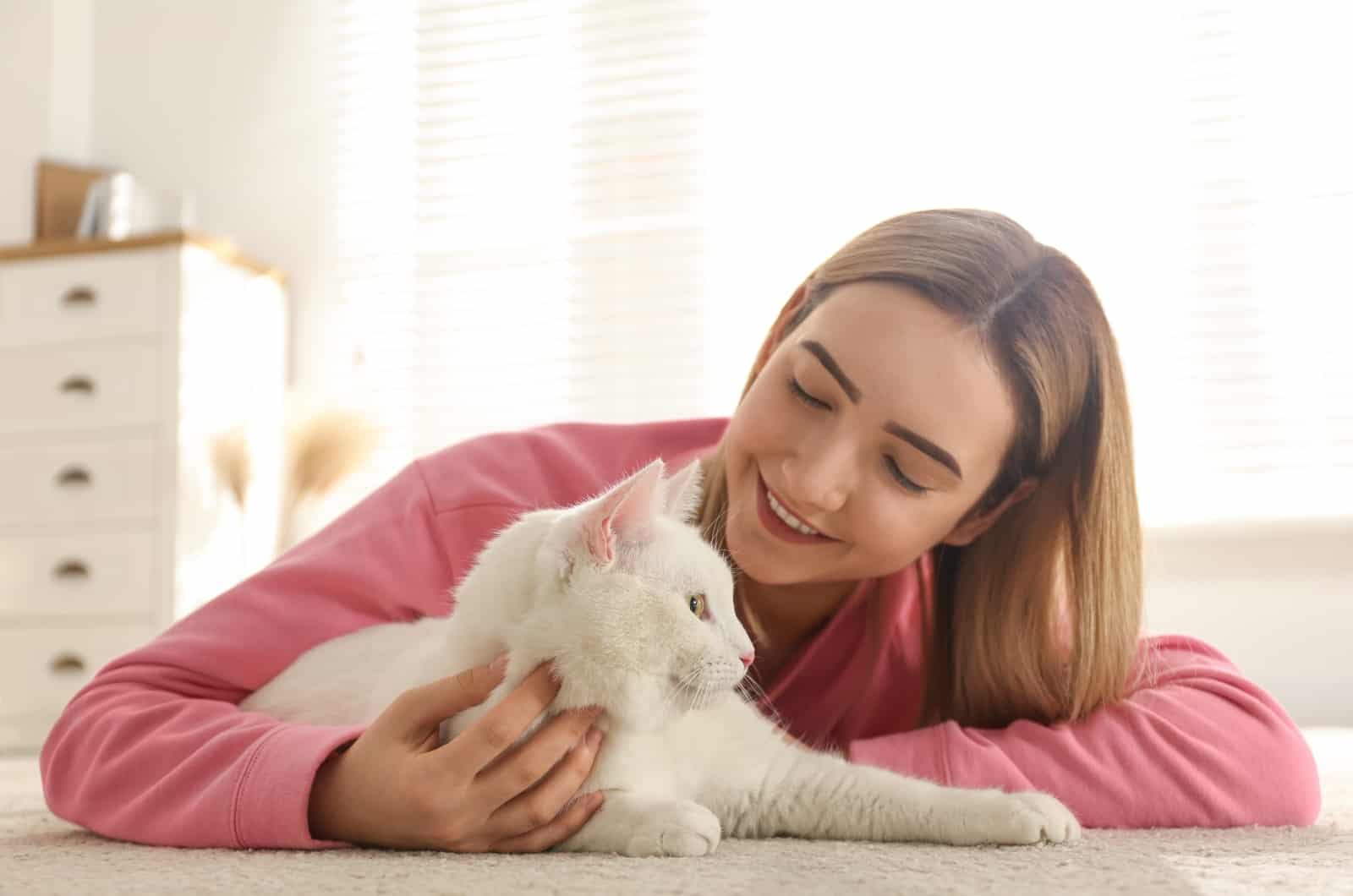
Purring is very good and healthy for cats, especially because when cats purr, you can be sure that they’re happy and satisfied with everything they need.
So, many cat owners whose cats don’t purr wonder if it’s possible to encourage a cat to purr.
Don’t leave me so soon because there are actually several things you can do to try and encourage your cat to purr. Here they are, so check them out!
Reduce Stressors In The Cat’s Environment
I already mentioned that some cats might not purr because they’re stressed or scared due to certain environmental things, for example.
Therefore if you want to encourage your cat to purr, one of the things you can do is to reduce or eliminate possible stressors in your cat’s environment.
Provide them with a safe and calm spot where they can feel relaxed and where they’ll be far away from whatever causes them to be stressed.
For example, if your kitty doesn’t feel comfortable around strangers, maybe you should isolate them in a calm room when you’re having guests over and similar.
Also, if your cat doesn’t feel comfortable but is stressed due to a new pet, maybe you should pay attention to introducing your cat to other pets properly and give them some time to get used to each other.
The most important thing is to provide your cat with a lot of love and attention and don’t let it feel neglected. Not only will these things encourage the cat to purr, they can also help improve the cat’s overall condition.
Cuddle With Your Cat
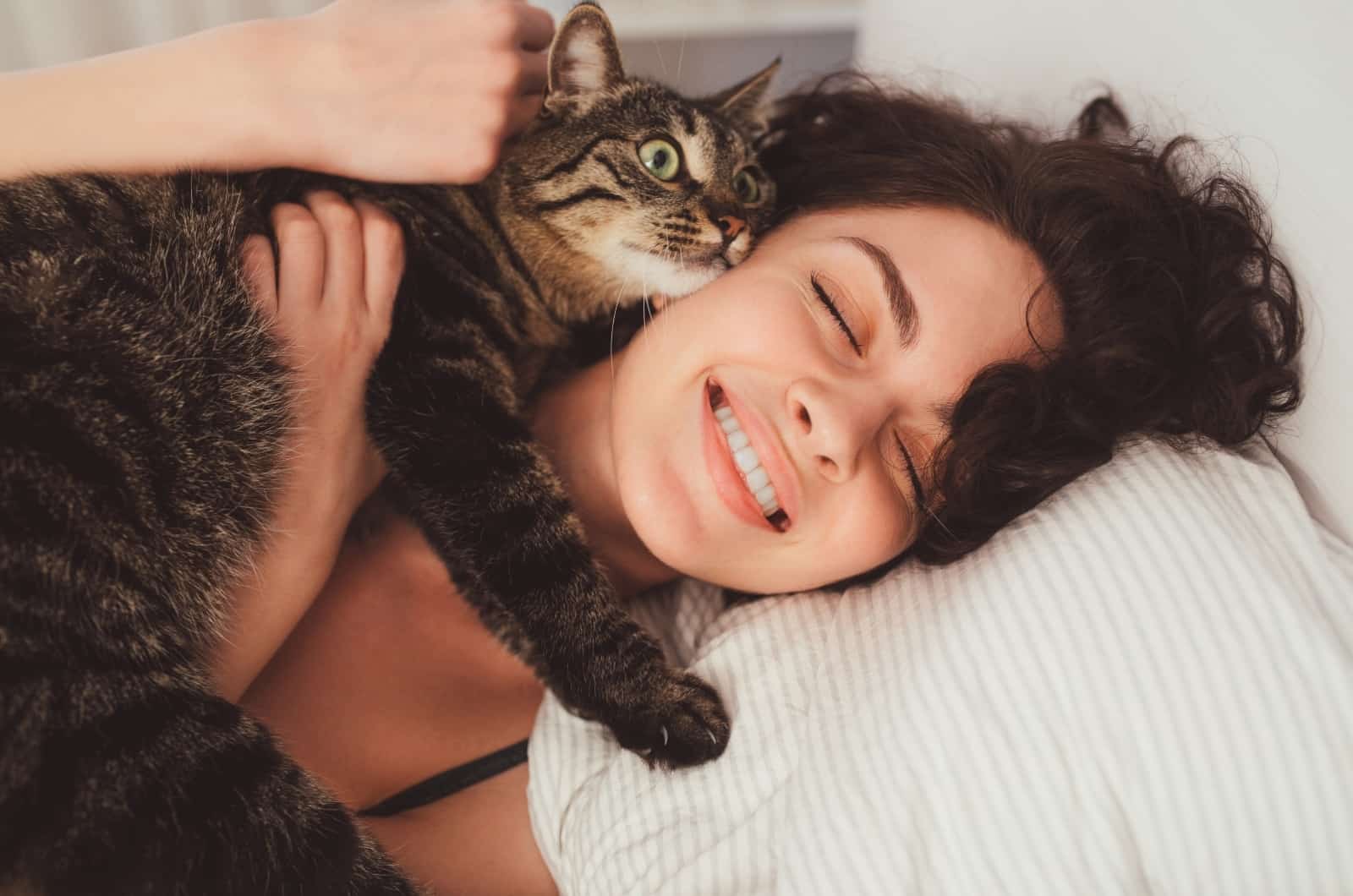
If you want your cat to purr, then you should work more on your bond. If your cat doesn’t trust you or isn’t yet used to you completely, it may not purr.
But there’s a solution for that too. If you want to improve your bond and encourage the cat to purr more, try cuddling with it more and spend more time playing and interacting with it.
However, be careful because if your kitty doesn’t like to be bothered or to cuddle all the time, then you shouldn’t bother it and interrupt its personal space, as that can worsen your bond even more.
Instead, let the cat come to you when it wants to cuddle or when it needs something from you.
Talk To Your Cat Gently
It may sound funny, but talking to our cats is of great importance when it comes to bonding and encouraging the cat to purr.
Talking to your cat gently may cheer your cat up more than you can imagine. Although they cannot understand the words we say, they can actually recognize our voices, which usually makes them comfortable and relaxed.
Besides normal talking, you can also try singing them a lullaby or mimicking some other cat sound which may encourage your cat to talk back to you, and that is a perfect form of interaction between a cat parent and a beloved cat friend.
Find The Spots That Your Cat Likes The Most
In case you haven’t noticed, cats that purr during cuddling and petting sessions tend to purr even more or louder when you hit their favorite spot.
So, if your kitty doesn’t purr, try finding the spots that it likes the most to encourage it to purr. Such spots include scratching behind the ears, under their chin, or at the end of their back around their tail.
These are the most usual spots that cats like, but you should also know that not every cat likes the same things.
Because of that, it would be very helpful if you would pay attention to the cat’s behavior and body language during petting and cuddling, which will help you recognize what your cat likes and doesn’t. Most importantly, you’ll know you have won if you hear it purr when scratching a certain spot.
Why Is It Important For Cats To Purr?
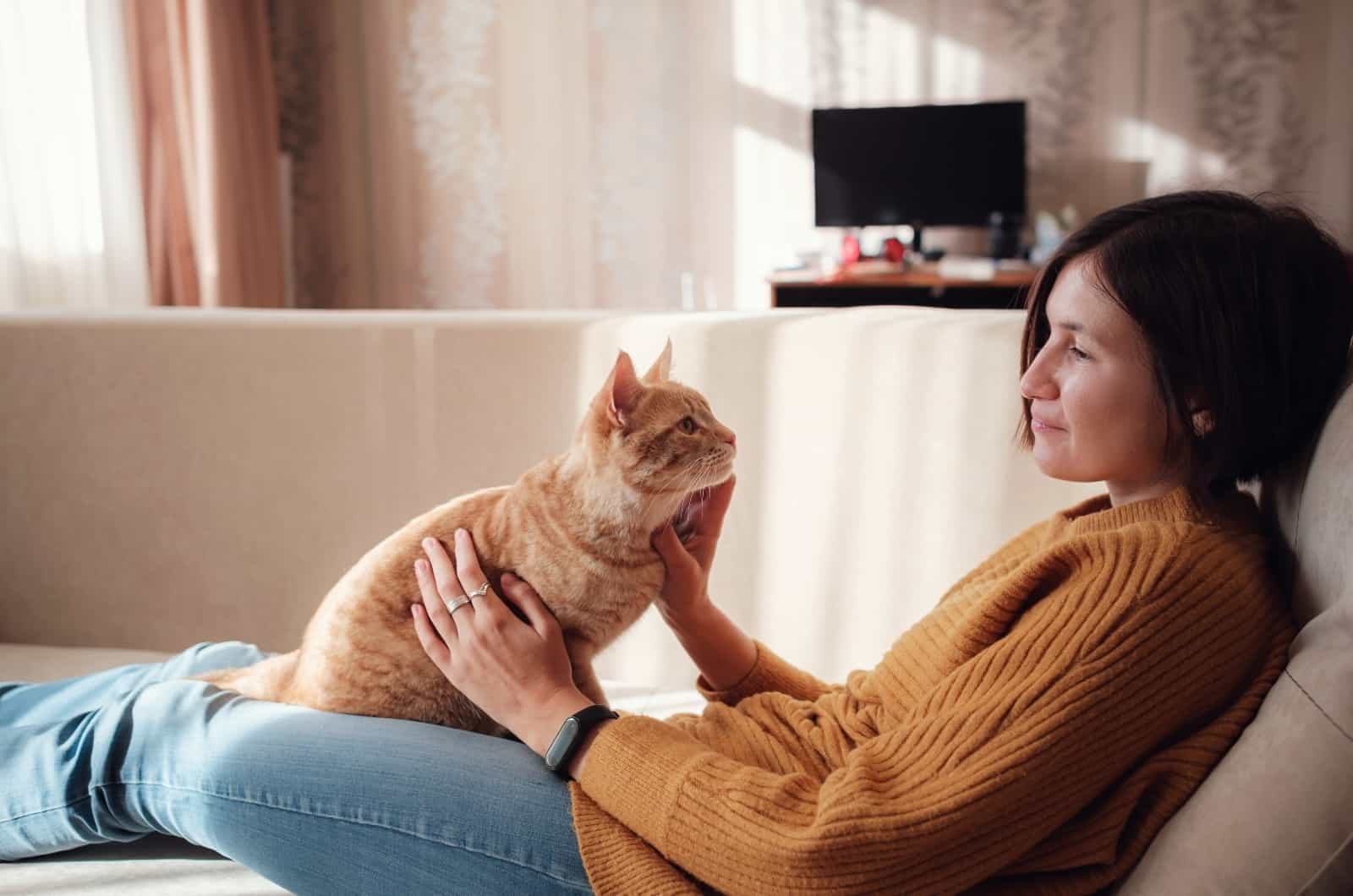
Purring is, along with meowing, one of the most popular sounds that cats can produce. Newborn kittens learn how to purr by hearing their mother’s purr. So, it’s something they learn from a young age and later serves them for many different things.
Besides being so popular, this sound also has many benefits for both cats and their owners.
With that being said, let’s see what are the benefits of purring for cats and what makes them perfect therapy animals.
• By purring, cats communicate with their owners or other pets, usually their littermates, or others who they feel comfortable and safe with.
• Cats produce the purring sound in order to calm themselves, usually in stressful or painful situations such as labor, injury, danger, or similar. So, this sound serves them as some kind of pain relief, I would say.
• The study of experts shows that cats’ purr may also serve as a health treatment. That way, they can easily fasten the healing process, such as bone or skin healing or soft tissue regeneration.
• When you see your cat purring while sleeping, it may be possible that the cat is relaxed and working on self-repair. Their body releases endorphins while they purr, which help them relax and calm down.
• It is also possible that cats purr when they’re hungry as a way of telling you to feed them. That way, purring is a perfect method of communication to get what they need.
• Finally, it has been proven that cat purring is also beneficial for humans. It’s beneficial in a way that a cat’s purr may help them with wound healing or bone growth and healing, improve the respiratory system, decrease the risk of heart attack and stress, and lower blood pressure.
So, if you’re a cat parent, then your cat is probably taking good care of you, just like you take good care of it.
FAQ
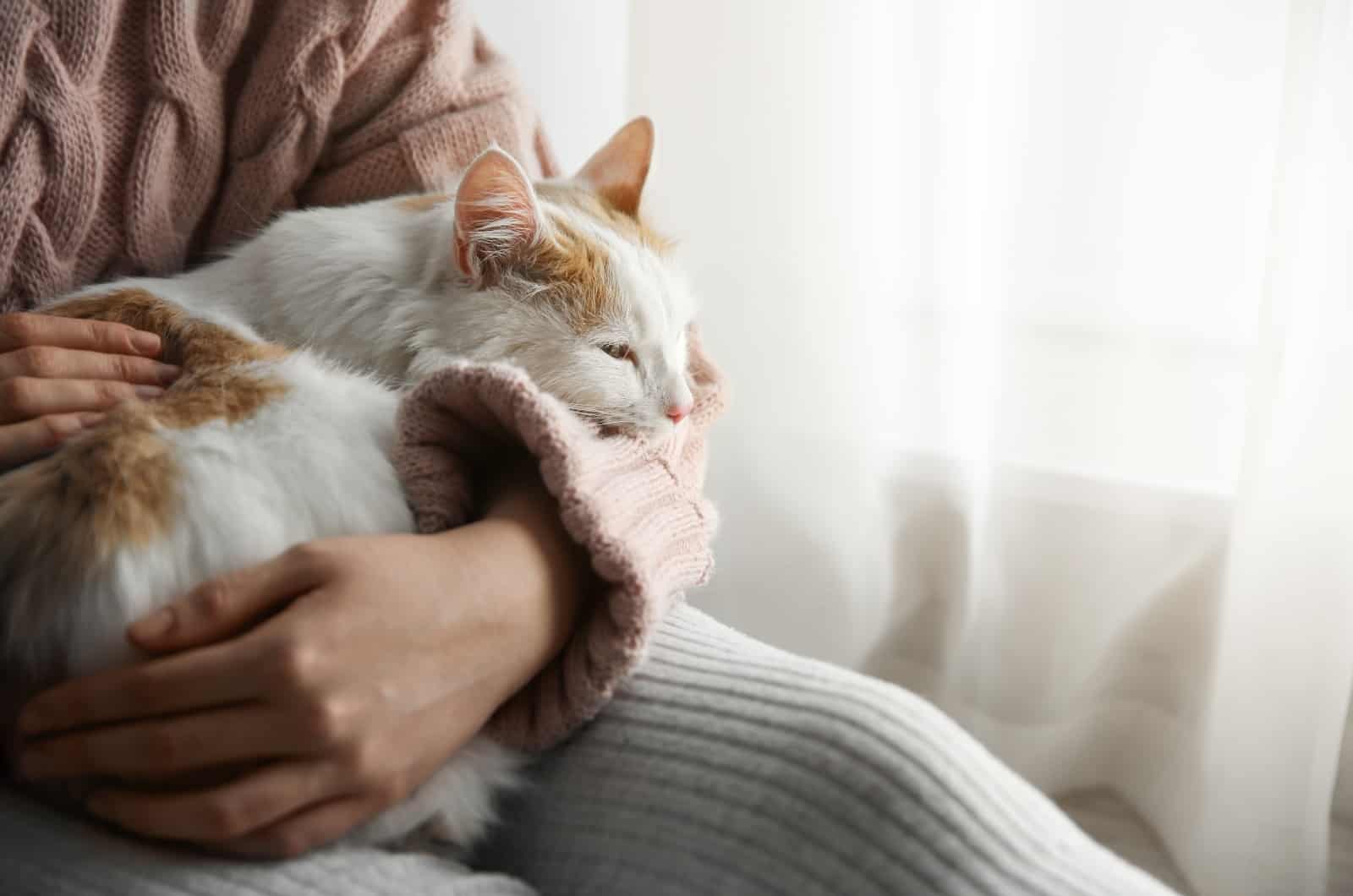
Can Cats Be Happy And Not Purr?
Yes, cats can be happy and not purr at all. Although purring behavior is often associated with a cat’s happiness and satisfaction, they don’t necessarily have to purr. The main reason for that is that some cats purr very quietly or don’t purr much at all.
In case your kitty never purred a lot, it may be that it’s just the way it is. However, if your kitty reduces or stops purring all of a sudden, then it may be that it’s having certain issues that need to be determined as soon as possible.
Why Is My Cat Purring So Loudly?
There are many different reasons for cats purring louder than usual. The most common reason for a cat purring loudly is that it’s extremely happy and relaxed. No wonder it is said that the happier the cat is, the louder it purrs.
However, some cats may purr louder than others because that is different with every cat breed. Just like that, talkative cats such as Siamese may often purr louder than the rest of them.
Other than that, cats may also purr loudly to calm themselves, or you. when they need something, when they sleep, and similar.
Why Is My Cat Vibrating But Not Purring?
A cat that isn’t purring but only vibrating is often afraid or angry. Because of that, it’s highly important to be able to recognize cats’ sounds that they use to communicate with people or other pets.
Purring is a vibration resulting from the usage of laryngeal muscles. However, when a cat vibrates with their vocal cords or mouth, it’s like they’re growling, which means that they’re not happy, but rather frightened or angry.
In such cases, it’s better to leave the cat alone rather than risk possible injuries and annoy the cat even more.
Finally…
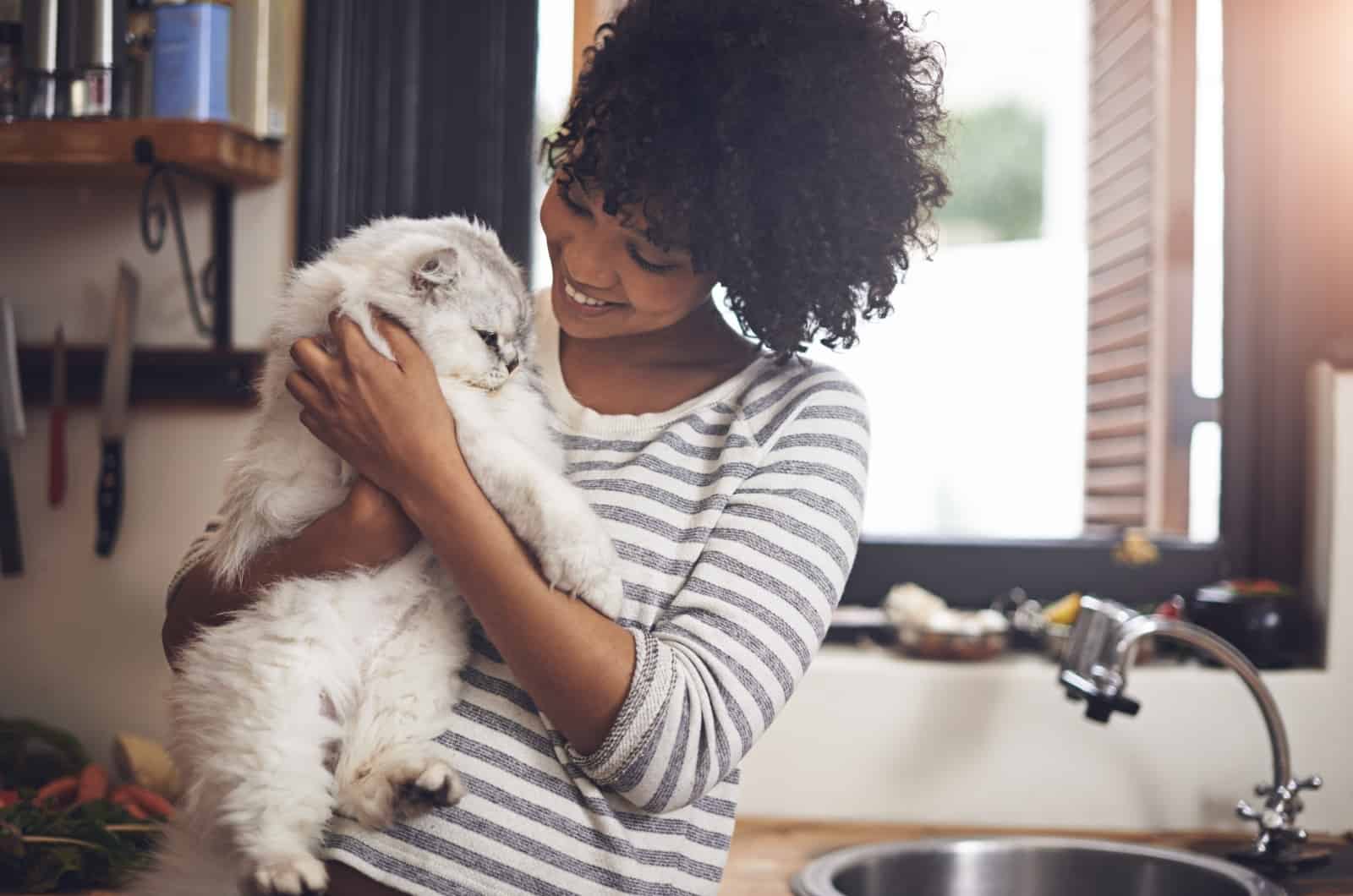
Your furry friend isn’t purring – should that worry you? Many cat owners ask me – why doesn’t my cat purr? Because of that, I decided to discuss this topic and hopefully help them understand better things about cat’s purring.
Therefore, this article provides you with the most common reasons for cats not purring. Sometimes, it may be normal, but sometimes the reason may be serious and require your help or that of a professional.
If your cat isn’t purring, it may be that your kitty doesn’t use purring to express its feeling or communicate, but it may also mean that the cat is stressed, sick, in pain, or even old.
If your cat stops purring all of a sudden, it’s essential to find the exact cause for that and try to fix it.
On the other hand, there are cats who have never purred much. Luckily, this article also provides you with several things you can try to encourage your cat to purr. Hopefully, you will enjoy this beautiful and relaxing sound too.
Related Articles
• 6 Reasons My Cat Keeps Meowing And Rubbing Against Everything

